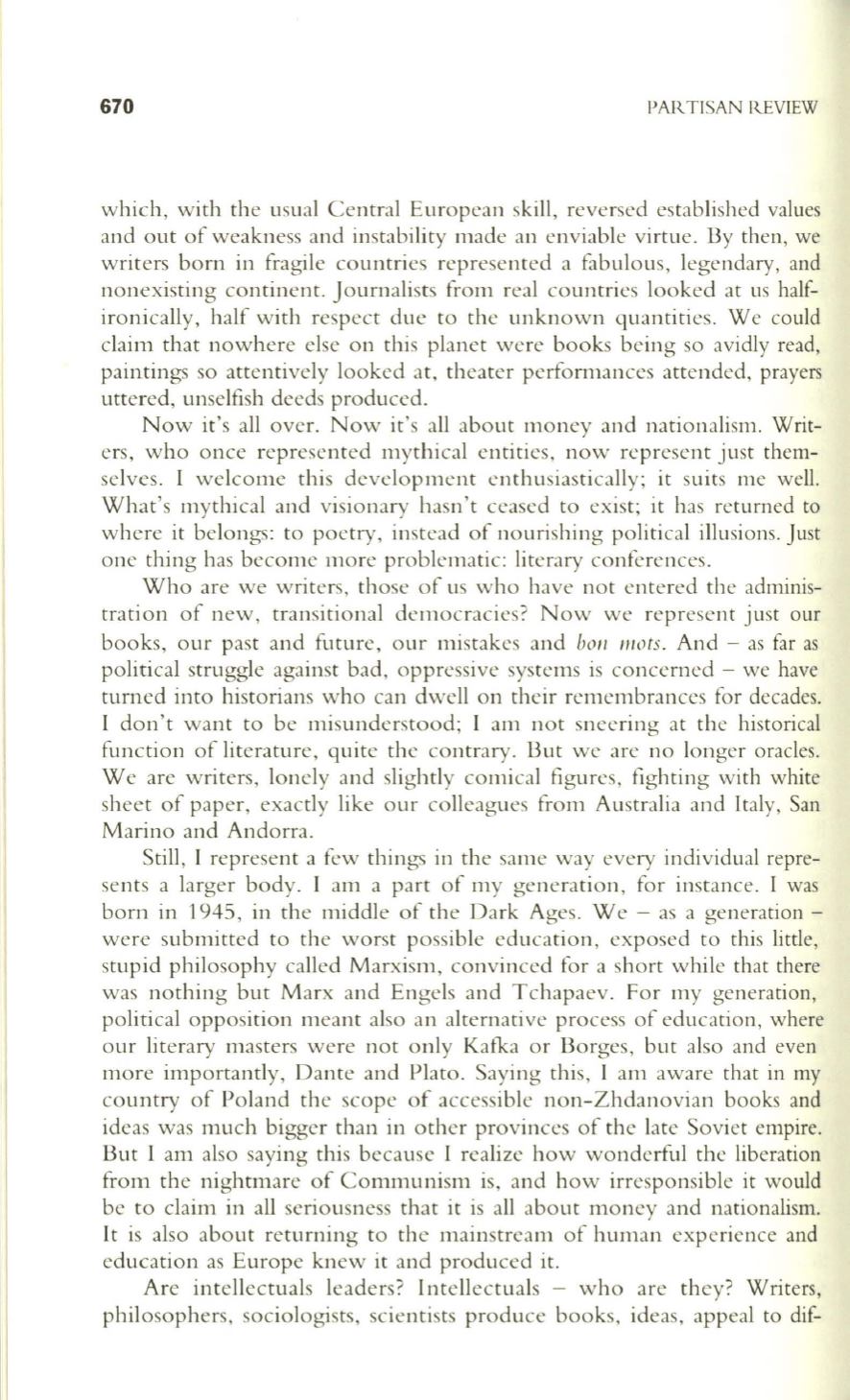
670
PARTISAN REVIEW
which, with the usual Central European skill, reversed established values
and out of weakness and instability made an enviable virtue. Dy then, we
writers born in fragile countries represented a fabulous, legendary, and
nonexisting continent. Journalists from real countries looked at us half–
ironically, half with respect due to the unknown quantities. We could
claim that nowhere else on this planet were books being so avidly read,
paintings so attentively looked at, theater performances attended, prayers
uttered, unselfish deeds produced.
Now it's all over. N ow it's all about money and nationalism. Writ–
ers, who once represented mythical entities, now represent just them–
selves. I welcome this development enthusiastically; it suits me well.
What's mythical and visionary hasn't ceased
to
exist; it has returned to
where it belongs: to poetry, instead of nourishing political illusions. Just
one thing has become more problematic: literary conferences.
Who are we writers, those of us who have not entered the adminis–
tration of new, transitional democracies? Now we represent just our
books, our past and future, our mistakes and
VOII IIIOfS .
And - as far as
political struggle against bad, oppressive systems is concerned - we have
turned into historians who can dwell on their remembrances for decades.
I don't want to be misunderstood; I am not sneering at the historical
function of literature, quite the contrary. But we are no lon ger oracles.
We are writers, lonel y and slightly comical figures , fighting with white
sheet of paper, exactly like our colleagues from Australia and Italy, San
Marino and Andorra.
Still, I represent a few things in the same way every individual repre–
sents a larger body. I am a part of my generation, for instance. I was
born in 1945, in the middle of the Dark Ages. We - as a generation -
were submitted to the worst possible education, exposed to this little,
stupid philosophy ca ll ed Marxism, convinced for a short while that there
was nothing but Marx and Enge ls and Tchapaev. For my generation,
political opposition meant also an alternative process of education, where
our literary masters were not only Kafka or Borges, but also and even
more importantly, Dante and Plato. Saying this, I am aware that in my
country of Poland the scope of access ible non-Zhdanovian books and
ideas was much bigger than in other provinces of the late Soviet empire.
But I am also saying this because I realize how wonderful the liberation
from the nightmare of Communism is, and how irresponsible it would
be
to
claim in all seriousness that it is all about money and nationalism.
It is also about returning to the mainstream of human experience and
education as Europe knew it and produced it.
Are intellectuals leaders? Intell ectua ls - who are they? Writers,
philosophers, sociologists, scientists produce books, ideas, appeal to dif-


